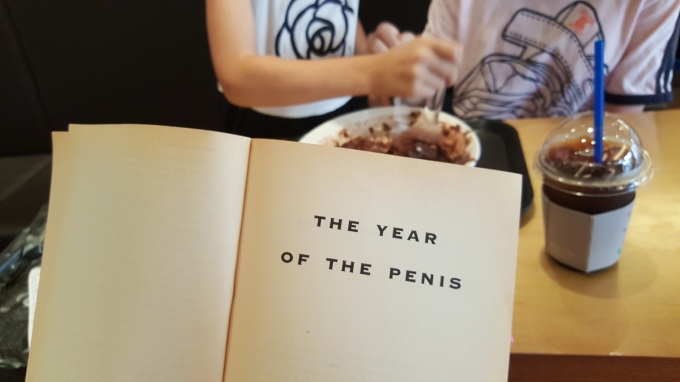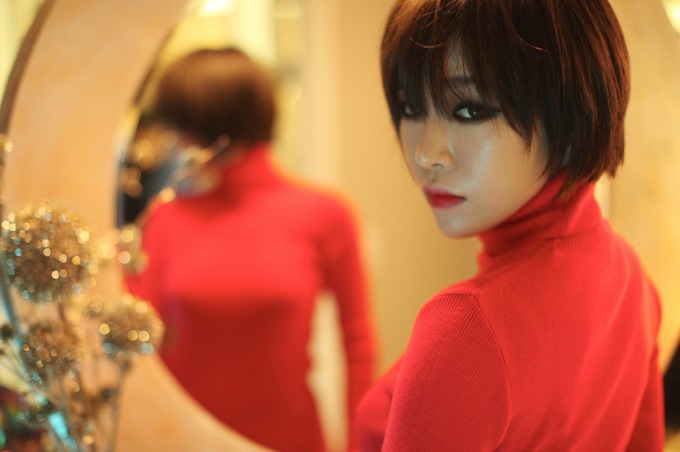I was quoted in the Korea Times today, on “Korean primetime’s ‘lookism’ problem”. Due to my sloppy wording though, the fact that I was actually paraphrasing someone else(!) got lost in the final article. So, to give credit where credit’s due, and to use the opportunity to provide some helpful links to further reading, here’s my original email quote:
As researcher Sarah Grogan pointed out in Body Image: Understanding Body Dissatisfaction in Men, Women and Children (2007), watching more television doesn’t necessarily lead to greater dissatisfaction with one’s body—it’s the messages it gives that are what’s important. So, whether it’s a variety program, a music video, an advertisement, or whatever, if what you’re watching stresses being thin, if it encourages viewers to compares themselves with the ideal men and women presented, and/or if it makes you feel like there’s such a huge gap between your own body and theirs, then you’re just going be left feeling ugly. Television everywhere is guilty of that. Korean television though, really stands out with the sheer amount of programming time devoted to appearance and dieting, with its uncritical narratives that cosmetic surgery is a safe and reliable means to financial and romantic success, and with the seeming unconcern with, even positive encouragement of passing those messages on to children. Call that a gross generalization if you wish, but consider this: although Korean children (of both sexes) are only about average weight compared to other OECD countries, Korea is the only country where 20-39 year-old women are getting thinner. Is it really so strange to suppose that the Korean media might have had something to do with that? So unreasonable to suggest that it could sometimes present more realistic images of women?
To be precise, it’s the 2nd half of the 2nd sentence (from “if what you’re watching” to “feeling ugly”) where I’m paraphrasing Sarah Grogan again (p. 112). But, without my making that clear, then it’s no wonder that reporter Kim Bo-eun didn’t realize, and so didn’t mention Grogran. My fault sorry, and, not just because I’m feeling guilty at the *cough* inadvertent plagiarism, naturally I highly recommend Grogans’ book, although frankly I’d wait to see if a third edition is coming out before you consider purchasing it yourself.
Most the of the subsequent links are self-explanatory, so I’ll just highlight a couple. First, the one to Joanna Elfving-Hwang’s “Cosmetic Surgery and Embodying the Moral Self in South Korean Popular Makeover Culture” at the Asia-Pacific Journal, because it’s a must-read. At best, I can only supplement it myself with this recent translation of mine (with links to many more articles) on how scarily unregulated—and genuinely dangerous—the Korean cosmetic surgery industry is, with a Chinese patient dying just last week.
Next, my latest article for Busan Haps, where I debunk recent alarmist reports about—yes, really—a ‘Korean Obesity Epidemic’, especially among children. To quickly sum up my findings for you here, despite the definite improvements that can be made to Korean children’s health, they are actually only about average weight for the OECD (which I suppose is news for Korea), and Korean adults are still the 5th thinnest overall. Like with smoking however, it is both misguided and unhelpful to think in terms of overall rates rather than specific demographics, two extreme cases in point being young, urban women who are getting more underweight, and elderly, rural, poor women who do indeed tend to be (slightly) more obese than ‘average’.  Something to consider the next time a columnist or show host lectures Korean women on eating less—which will probably be as soon as next week, in the run-up to Seolnal on the 18th (source, right: Entermedia).
Something to consider the next time a columnist or show host lectures Korean women on eating less—which will probably be as soon as next week, in the run-up to Seolnal on the 18th (source, right: Entermedia).
Finally, another clarification. By “Korean television…really [standing] out with the sheer amount of programming time devoted to appearance and dieting”, I don’t mean shows explicitly devoted to those subjects as such (although I’m sure that, comparatively speaking, their numbers would still be quite high). Rather, it’s that those subjects pervade Korean programming content, with hosts on Korea’s disproportionately high number of variety and guest shows, for example, frequently commenting on especially female guests’ appearances, either by jokingly fat-shaming those that don’t fit the ideal, or by prompting ‘impromptu’ skits, dance performances, or testimonials about dieting and miracle fat-reduction products by those that do, to the extent that such body-policing becomes an integral component of the entertainment (Kim Bo-eun also mentions some examples in Korean comedy shows).
This is just my strong impression though, which I admit I can’t offer any content analysis to back-up, and which I doubt even exists anyway (would anyone like to do some with me?). If any readers have a different impression of Korean television then, and feel that I’m mistaken, by all means please tell me why!

 Podcast Running Time: 1 hour 12 minutes.
Podcast Running Time: 1 hour 12 minutes.
























